Best AI tools for< Refinance Loan >
12 - AI tool Sites
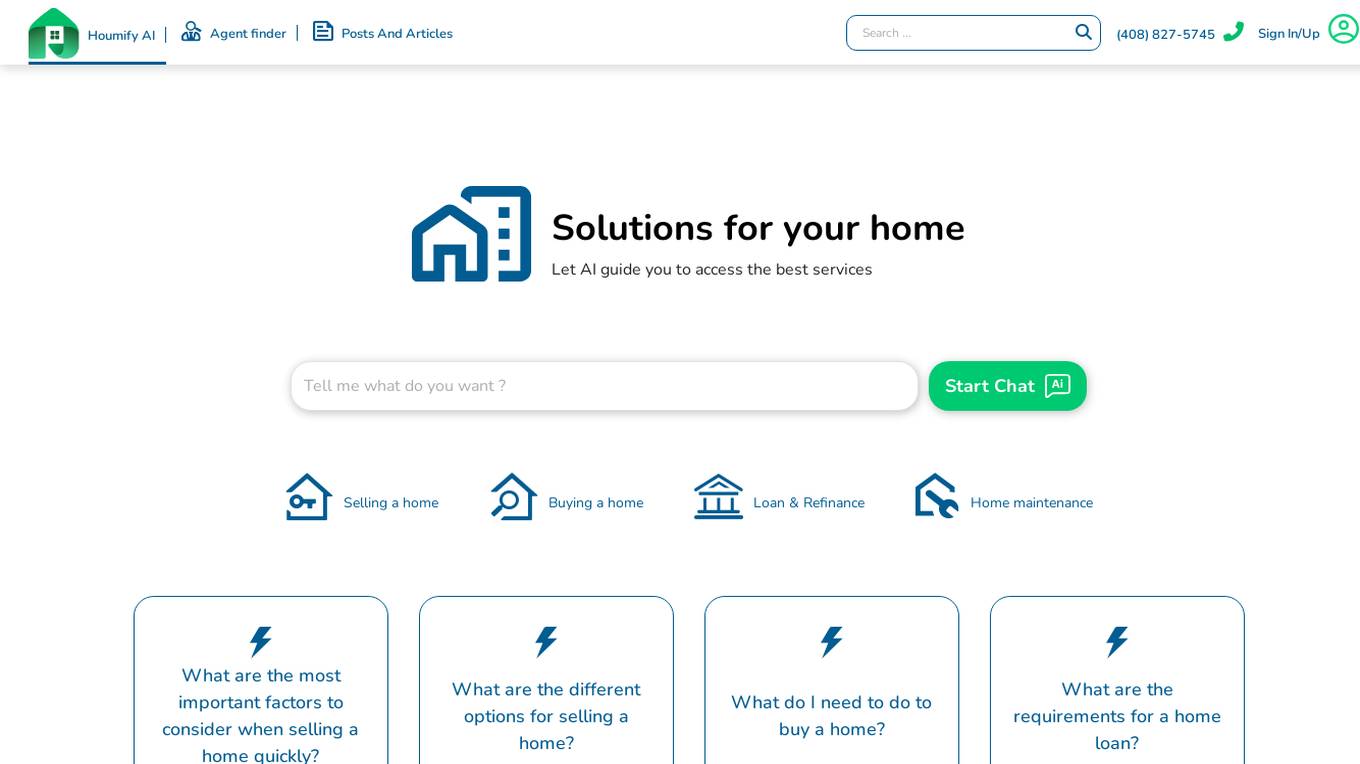
Houmify
Houmify.com is an AI-powered property companion that offers personalized real estate solutions. The platform uses artificial intelligence to guide users in accessing the best services related to selling a home, buying a home, loan & refinance, and home maintenance. Users can interact with the AI Agent to get expert advice and recommendations tailored to their specific needs and preferences. The website also provides informative posts and articles on real estate topics to help users make informed decisions. With a focus on user experience and convenience, Houmify aims to simplify the real estate process and empower individuals in their property transactions.

yourwAI
yourwAI is an AI-powered platform that matches your personality, skills, passions, and dreams with your ideal career path. By aligning your unique personality, skills, and experiences, we reveal 5 personalized career paths tailored just for you. Our advanced algorithm uses natural language processing (NLP) and personality analysis to match your aspirations with the career that's right for you.

PulsePost AI
PulsePost AI is an AI-powered tool designed to help established service businesses close the enquiry-to-sale gap and maintain a consistent flow of deals without the need for manual follow-up. The tool installs a self-sustaining deal machine that filters out browsers from buyers, responds to new leads quickly, reactivates old leads, and books qualified appointments seamlessly. PulsePost AI focuses on creating predictable profit and daily appointments for service businesses, ensuring a steady revenue stream and eliminating the unpredictability in sales processes.
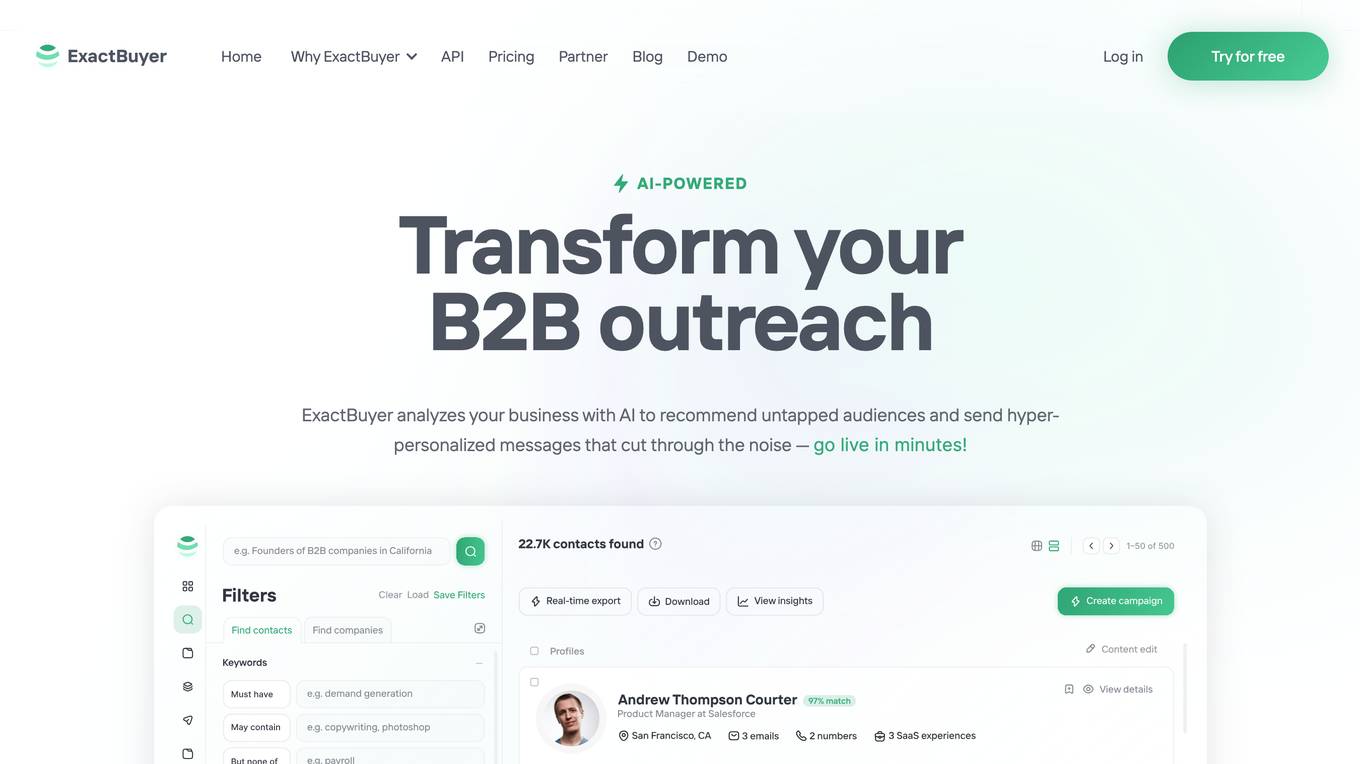
ExactBuyer
ExactBuyer is an AI-powered B2B customer and candidate acquisition platform that offers sales prospecting tools, recruiting solutions, and marketing services. The platform leverages AI to prioritize, analyze, score, and engage customers with value-driven messaging. ExactBuyer enriches CRM contacts with over 115+ attributes, provides real-time audience building, and offers AI-driven APIs for target audience maintenance. The platform enables users to personalize emails, launch data-backed campaigns, and streamline talent discovery. ExactBuyer also provides deep insights, integrations, and smart recommendations to optimize outreach strategies and maximize engagement results.
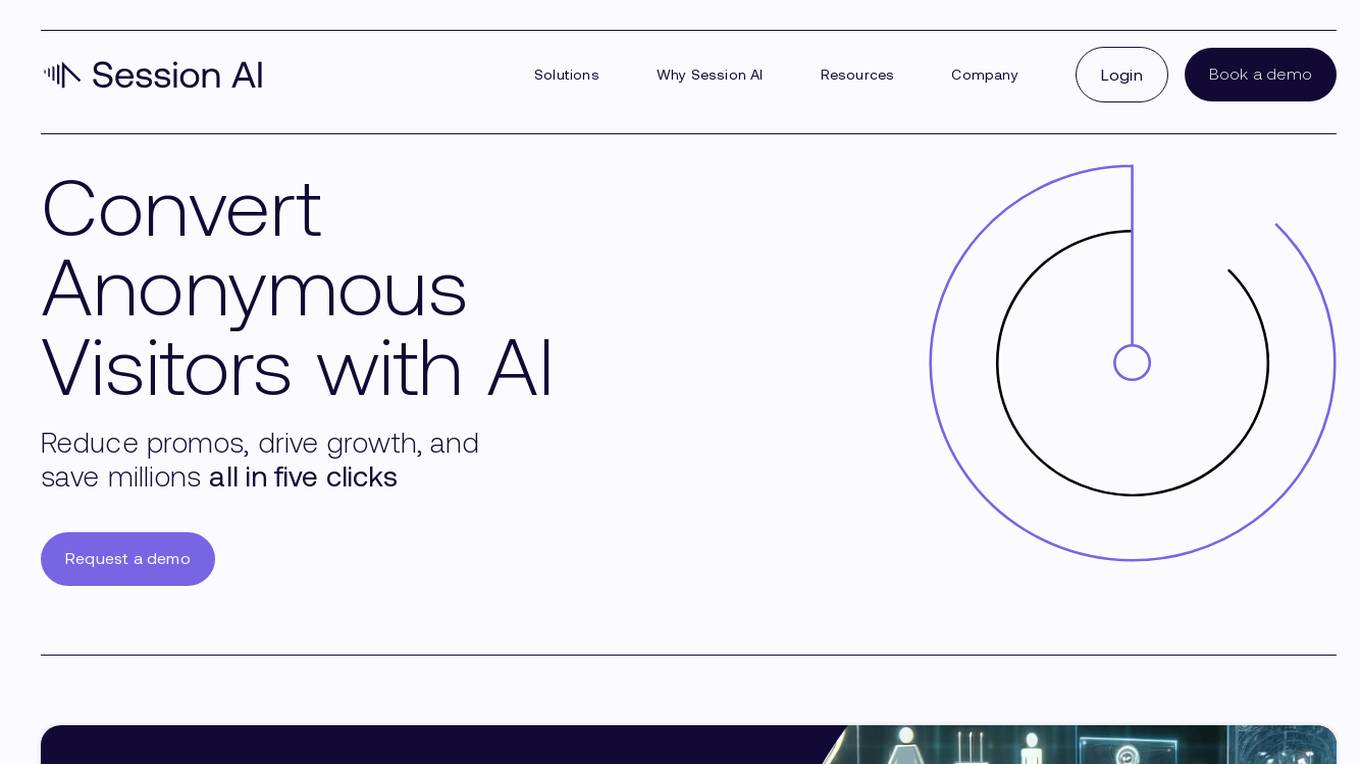
Session AI
Session AI is an in-session marketing platform that helps businesses convert anonymous visitors into customers. It uses AI to predict purchase intent and deliver real-time actions that drive conversions. Session AI can be used by businesses of all sizes in a variety of industries, including retail, travel, and hospitality.

Opulli
Opulli is an AI Fashion Model Platform for Clothing Brands that provides a smart and cost-effective solution for fashion retailers to avoid expensive photoshoots. The platform allows users to effortlessly bring product photos to life with captivating AI generated models, offering personalized connection at scale and accelerating market resonance with swift A/B testing. Opulli empowers brands to craft model photos that resonate deeply with their audience, mirroring body shapes, skin tones, and styles, without the limitations of traditional photoshoots.
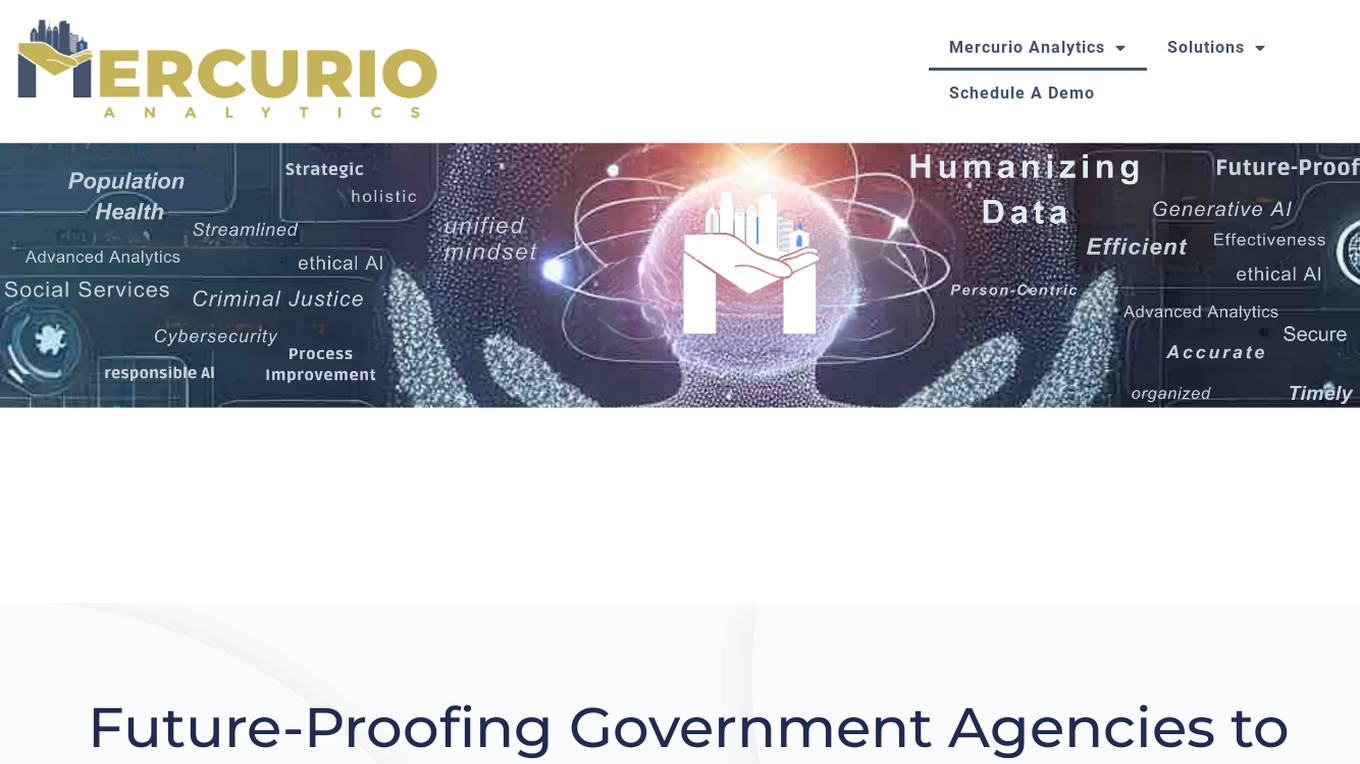
Mercurio Analytics
Mercurio Analytics is an AI-driven data insights and analytics platform designed to empower government agencies with advanced data management and analytics capabilities. The platform offers a purpose-built, person-centric SaaS solution that democratizes data access, eliminates reliance on costly consultants, and enables informed decision-making for impactful outcomes in community services. By leveraging AI-powered insights, Mercurio Analytics helps government agencies navigate complex social challenges, uncover root causes, and drive meaningful change through data-driven decision-making and policy creation.

BOTINKIT
BOTINKIT is an AI-driven digital kitchen solution designed to empower foodservice transformation through AI and robotics. It helps chain restaurants globally by eliminating the reliance on skilled labor, ensuring consistent food quality, reducing kitchen labor costs, and optimizing ingredient usage. The innovative solutions offered by BOTINKIT are tailored to overcome obstacles faced by restaurants and facilitate seamless global expansion.
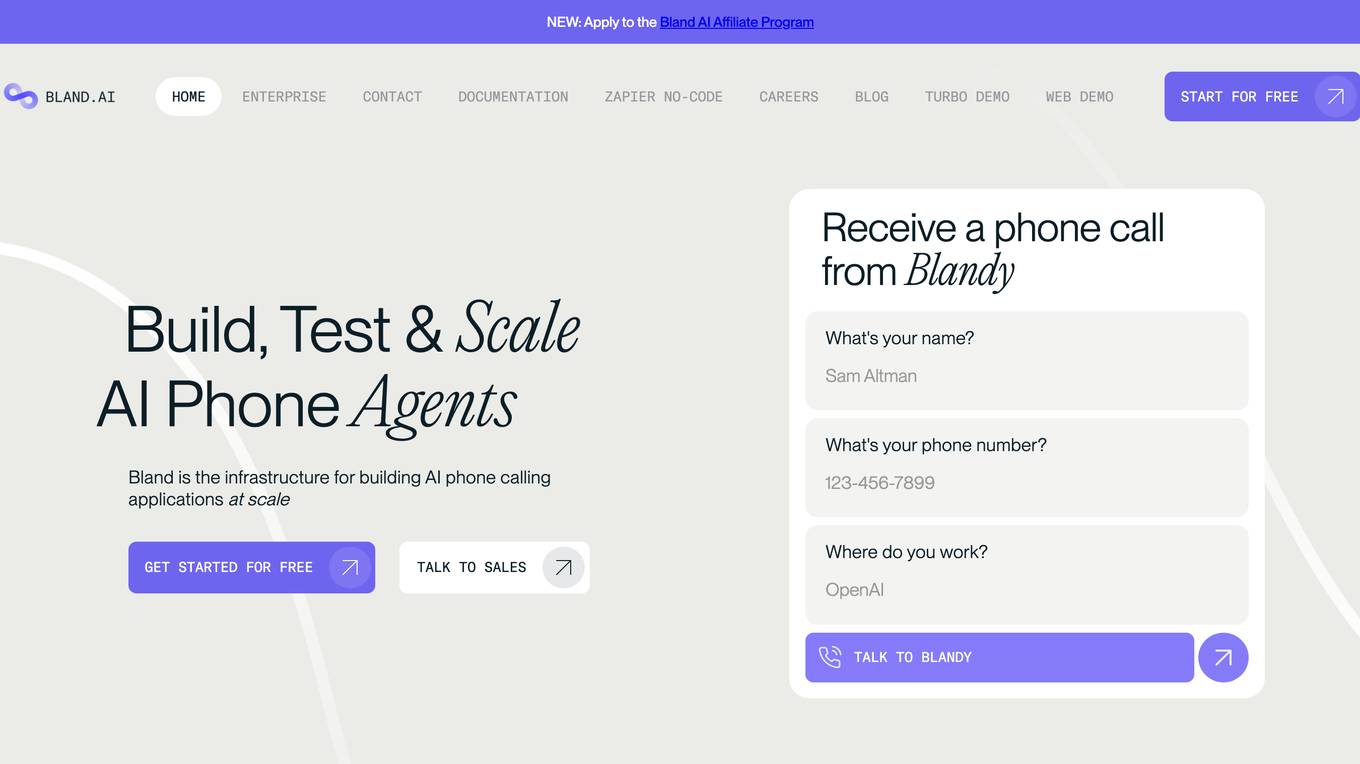
Bland AI
Bland AI is an AI application that automates phone calls using conversational AI for enterprises. It allows users to automate inbound and outbound calls, customize voice and language, integrate with other tools, and create human-like conversations. Bland AI offers features such as voice cloning, language customization, tool integration, and pathway creation for conversations. It provides advantages like increased efficiency, improved customer service, scalability, customization, and enterprise-level support. However, some disadvantages include potential privacy concerns, reliance on AI technology, and the need for initial setup and training. The application is suitable for sales, customer support, operations, product development, and data collection tasks.
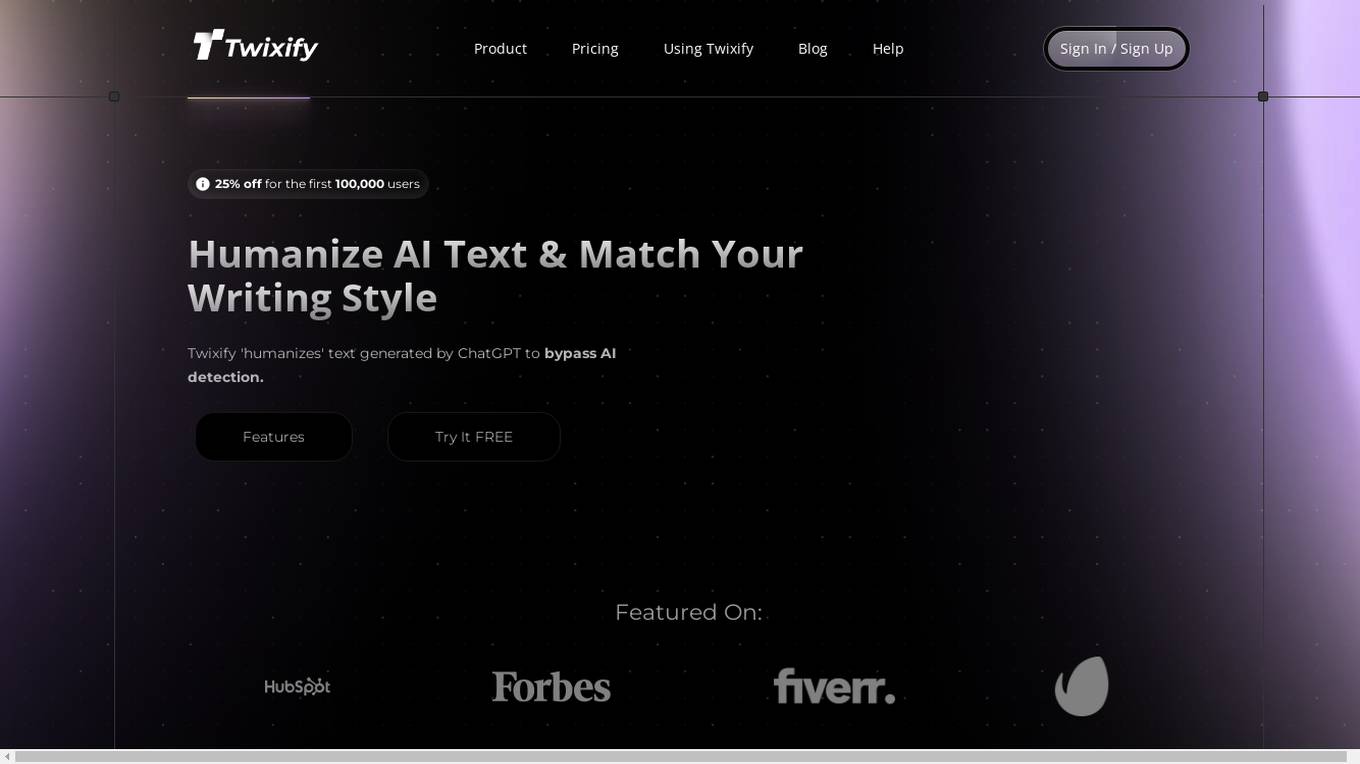
Twixify
Twixify is an online AI humanizer tool that converts AI-generated text into 'undetectable' human-like text, bypassing AI detection tools. It helps users to mimic their writing style, remove plagiarism, and improve text for SEO purposes. Twixify offers features like humanizing AI text, matching writing style, expanding content, and providing examples. It has advantages such as enhancing authenticity, improving readability, and customizing writing presets. However, some disadvantages include potential loss of original meaning, limited customization options, and reliance on AI-generated content.
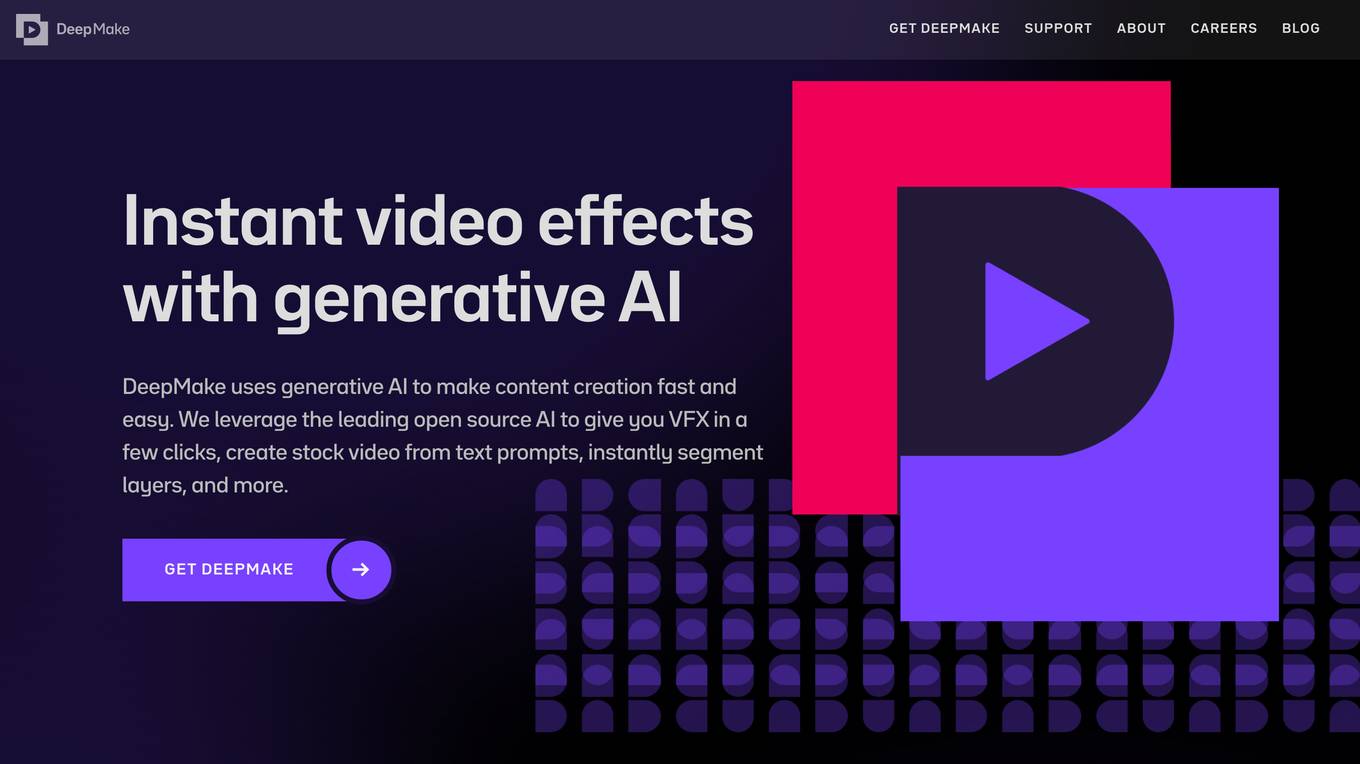
DeepMake
DeepMake is a powerful AI tool that empowers users to unleash their creativity by providing control over Open Source AI tools for enhancing visual content. With DeepMake, users can create, edit, and enhance images and videos without any usage limits or reliance on cloud services. The application runs locally on the user's computer, offering a higher level of control over AI-generated output and introducing new AI tools regularly to stay at the forefront of AI capabilities.

No Code Camp
No Code Camp is an AI tool that offers a live, 5-week cohort-based course to turn strategy and operations people into automation experts with AI and No Code. The platform enables non-technical individuals to build applications, automate workflows, and develop web platforms using graphical interfaces, AI, and tool configuration instead of writing code. No Code Camp democratizes software development, making it accessible to a broader audience, speeding up the development process, and reducing the reliance on specialized software development skills. The course covers essential topics such as Data Architecture, Interface Design, AI Scaling, and No Code Automation, equipping participants with the skills needed to automate business processes and build internal tools.
0 - Open Source AI Tools
2 - OpenAI Gpts

Sermon Supervisor: Find the Right GPT for You
Connects you to specialized assistants for every sermon-related need. From discerning historical context, destroying sources of confusion, and developing discussion questions to enhancing emotional resonance and audience reception, discover bespoke solutions for powerful, persuasive sermons.